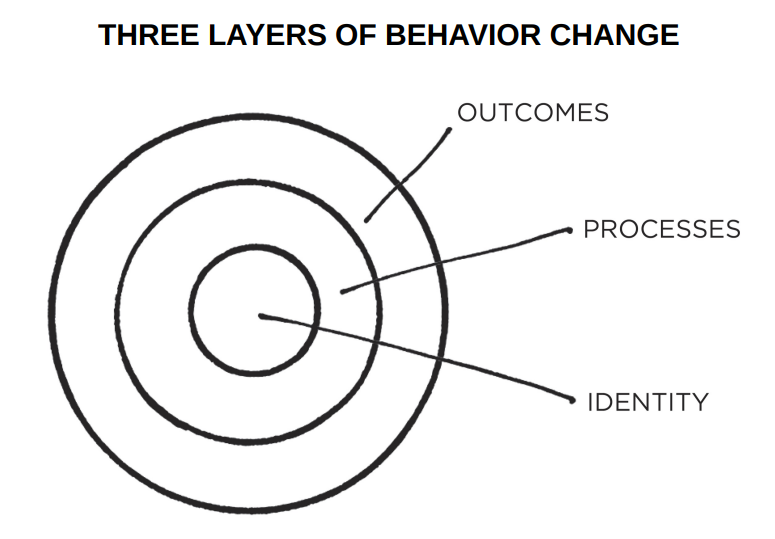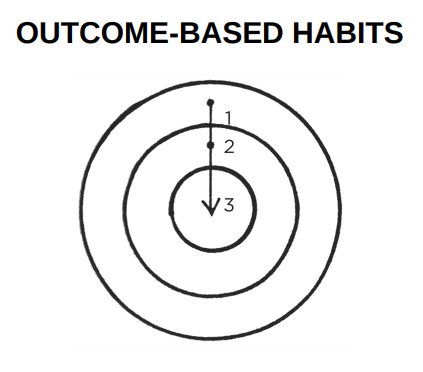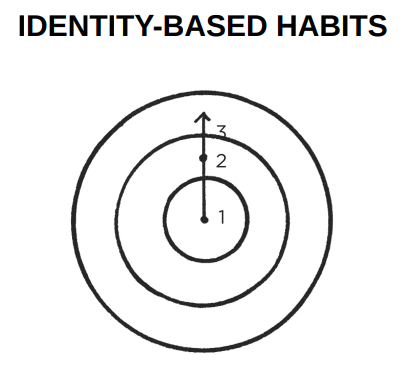THE FUNDEMANTALS: Why Tiny Changes Make a Big Difference
The surprising power of atomic habits
It is so easy to overestimate the importance of one defining moment and underestimate the value of making small improvements on a daily basis.
Habits are the compounding interest of self-improvement.
Your outcomes are a lagging measure of your habits.
Breakthrough moments are often the result of many previous actions, which build up the potential required to unleash a major change. Similarly, habits often appear to make no difference until you cross a critical threshold and unlock a new level of performance, which can be a great challenge to your patience.
FORGET ABOUT GOALS, FOCUS ON SYSTEMS INSTEAD.
What is the difference between systems and goals? Goals are about the results you wants to achieve. Systems are about the processes that lead to those results.
Goals are good for setting a direction, but systems are best for making progress. If you want better results, then forget about setting goals. Focus on your system instead.
Only focusing on the goals has a bunch of drawbacks:
- Goals can be misleading. You shouldn’t mistakenly assume that ambitious goals led to their success while overlooking all of the people who had the same objective but didn’t succeed.
- Achieving a goal is only momentary change. If you don’t focus on the system, you treat a symptom without addressing the cause. The risk of failure might lurk in the future.
- Goals restricts your happiness. Goals creates an “either-or” conflict: either you achieve your goal and are successful or you fail and you are a disappointment. You mentally box yourself into a narrow version of happiness. When you fall in love with the process rather than the product, you don’t have to wait to give yourself permission to be happy. You can be satisfied anytime your system is running.
- Goals are at odds with long-term progress. A goal-oriented mind-set might lead to the opposite direction. When all of your hard work is focused on a particular goal, what is left to push you forward after you achieve it? This is why many people find themselves reverting to their old habits after accomplishing a goal.
If you’re having trouble changing your habits, the problem isn’t you. The problem is your system. You do not rise to the level of your goals. You fall to the level of your systems.
How your habits shape your identity (and vice versa)
Changing our habits is challenging for two reasons: (1) we try to change the wrong thing and (2) we try to change our habits in the wrong way.
There are three levels at which change can occur. The first layer is changing your outcomes. The second layer is changing your process, involving changing your habits and systems. The third and the deepest layer is changing your identity, which is concerned with changing your beliefs.

Obviously we can’t change what has happened, but we can determine what will happen in the future by changing the process. Many people begin the process of changing their habits by focusing on what they want to achieve. This lead us to outcome-based habits.

The alternative is to build identity-based habits. With this approach, we start by focusing on who we wish to become.

The outcome-based habit is what I view as external habit, while the identity-based habit is kind of intrinsic habit.
Example >>> Imagine two people resisting a cigarette. When offer a smoke, the first person says, “No, thanks. I’m trying to quit.” It sounds like a reasonable response, but this person still believes they are a smoker who is trying to be something else. The second person declines by saying, “No thanks. I’m not a smoker.” It is slightly different, but this statement signals a shift in identity.
Behind every system of actions are a system of beliefs. There are a set of beliefs and assumptions that shape the system, an identity behind the habits.
Behavior that is incongruent with the self will not last.
The ultimate form of intrinsic motivation is when a habit becomes part of your identity. It’s one thing to say I’m the type of person who wants this. It’s something very different to say I’m the type of person who is this.
True behavior change is identity change. You might start a habit because of motivation, but the only reason you’ll stick with one is that it becomes part of your identity.
- The goal is not to read a book, the goal is to become a reader.
- The goal is not to play table tennis, the goal is to become a PRO of table tennis.
Your behaviors are usually a reflection of your identity. What you do is an indication of the type of person you believe that you are—either consciously or unconsciously. The more deeply a thought or action is tied to your identity, the more difficult it is to change it. If they conflict with your identity, you will fail to put them into action.
Over the long run, the real reason you fail to stick with habits is that your self-image gets in the way. Becoming the best version of yourself requires you to continuously edit your beliefs, and to upgrade and expand your identity.
THE TWO-STEP PROCESS TO CHANGING YOUR IDENTITY
Reference
- Atomic Habits by James Clear